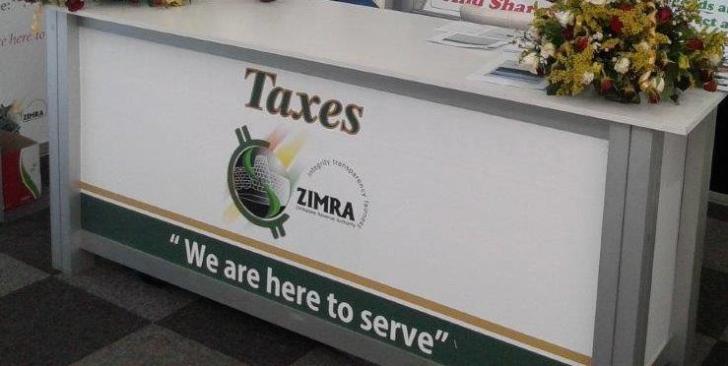News / National
Zimbabwe's new policy outlines plans to widen tax base
27 Oct 2024 at 12:18hrs |
1 Views

The Zimbabwean government has announced a new policy under the Zimbabwe Industrial Reconstruction and Growth Plan (ZIRGP) to simplify tax models for Small to Medium Enterprises (SMEs). This move aims to encourage the formalisation of informal businesses and widen the national tax base. ZIRGP, which spans from October 2024 to December 2025, serves as a transitional manufacturing policy document that focuses on import substitution and bridges the gap between the Zimbabwe National Industrial Development Policy (ZNIDP) (2019-2023) and its upcoming successor (2025-2030), aligned with the National Development Plan 2.
The Zimbabwe National Chamber of Commerce (ZNCC) state of industry and commerce survey of 2023 revealed that approximately 71 percent of local businesses operate informally. This trend places an excessive tax burden on the limited number of formalised businesses. Simplifying compliance procedures could reduce these disparities, as small retailers would find it easier to register and comply with regulations, ZIRGP stated.
"Measures are needed to prescribe simplified registration and minimum mandatory licensing requirements that promote formalisation through the Shop Licensing Act," said the ZIRGP. Proposed measures include streamlined registration processes, simplified mandatory licensing, and the promotion of electronic transactions, as well as encouraging businesses to register bank accounts and use Point-of-Sale (POS) machines to promote cashless transactions.
The recent arrival of Starlink in Zimbabwe is expected to expand internet access, especially in rural areas, further supporting electronic transactions. SME Association of Zimbabwe CEO Mr. Farai Mutambanengwe welcomed the policy, noting that complicated tax procedures had previously hindered formalisation efforts. "A simplified tax regime would ensure SMEs can comply easily and speedily," he said.
A study by University of Zimbabwe researcher Mr. Curren Pindiriri estimates that informalisation cost the Treasury around US$1.15 billion between 2020 and 2023, highlighting the potential fiscal benefits of expanding formalisation efforts. Finance, Economic Development and Investment Promotion Minister Professor Mthuli Ncube has cautioned that reduced tax compliance due to high levels of informalisation presents a risk to revenue collection.
The informal sector continues to play a crucial role in Zimbabwe's economy, offering employment to large segments of the population, particularly in rural and peri-urban areas. However, ZIRGP outlines additional challenges facing the manufacturing sector, including high regulatory and utility costs, which the government seeks to address.
To enhance Zimbabwe's business environment, the Ministry of Industry and Commerce, in partnership with the National Competitiveness Commission, is conducting a Regulatory Impact Assessment to revise regulations that hinder business operations. Additionally, a committee led by the Office of the President and Cabinet has started work on reducing the number of business licences and expediting the licensing process by the end of the year.
In line with global best practices, the simplified tax model will offer options such as lump-sum or fixed-amount taxes targeted at microenterprises, as well as presumptive taxes based on turnover or standardised cost deductions for expenses. According to the World Bank, while simplified tax regimes are popular, they carry risks of abuse. Concerns persist that the informal sector might still view the tax burden as excessive, which could deter compliance.
These initiatives underscore the government's commitment to creating a more conducive environment for SME growth while aiming to reduce revenue losses caused by informalisation.
The Zimbabwe National Chamber of Commerce (ZNCC) state of industry and commerce survey of 2023 revealed that approximately 71 percent of local businesses operate informally. This trend places an excessive tax burden on the limited number of formalised businesses. Simplifying compliance procedures could reduce these disparities, as small retailers would find it easier to register and comply with regulations, ZIRGP stated.
"Measures are needed to prescribe simplified registration and minimum mandatory licensing requirements that promote formalisation through the Shop Licensing Act," said the ZIRGP. Proposed measures include streamlined registration processes, simplified mandatory licensing, and the promotion of electronic transactions, as well as encouraging businesses to register bank accounts and use Point-of-Sale (POS) machines to promote cashless transactions.
The recent arrival of Starlink in Zimbabwe is expected to expand internet access, especially in rural areas, further supporting electronic transactions. SME Association of Zimbabwe CEO Mr. Farai Mutambanengwe welcomed the policy, noting that complicated tax procedures had previously hindered formalisation efforts. "A simplified tax regime would ensure SMEs can comply easily and speedily," he said.
The informal sector continues to play a crucial role in Zimbabwe's economy, offering employment to large segments of the population, particularly in rural and peri-urban areas. However, ZIRGP outlines additional challenges facing the manufacturing sector, including high regulatory and utility costs, which the government seeks to address.
To enhance Zimbabwe's business environment, the Ministry of Industry and Commerce, in partnership with the National Competitiveness Commission, is conducting a Regulatory Impact Assessment to revise regulations that hinder business operations. Additionally, a committee led by the Office of the President and Cabinet has started work on reducing the number of business licences and expediting the licensing process by the end of the year.
In line with global best practices, the simplified tax model will offer options such as lump-sum or fixed-amount taxes targeted at microenterprises, as well as presumptive taxes based on turnover or standardised cost deductions for expenses. According to the World Bank, while simplified tax regimes are popular, they carry risks of abuse. Concerns persist that the informal sector might still view the tax burden as excessive, which could deter compliance.
These initiatives underscore the government's commitment to creating a more conducive environment for SME growth while aiming to reduce revenue losses caused by informalisation.
Source - The Sunday Mail
Join the discussion
Loading comments…
































